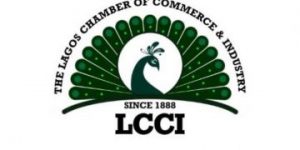The Lagos Chamber of Commerce and Industry (LCCI) have advised the Federal and State Governments to liberalise the infrastructure sector by breaking government monopoly and securitize corporate assets via public offerings to attract investment.
In an official statement signed by the Director-General of the LCCI, Dr Chinyere Almona, the chamber listed multiple recommendations to address the fiscal and financial challenges of the country including the rising debt service to revenue ratio and moribund assets generating no income for the country.
The chamber stated: “The country’s debt situation has become worrisome with debt servicing consuming a significant share of the revenue. The debt service to revenue ratio for the period of January to May 2021 stood at about 98 per cent up from 83 per cent recorded in 2020 according to the budget implementation report.
“Nigeria is an asset-rich nation owning hundreds of large state-owned companies, valuable parcels of land, and built structures in prime commercial locations that are grossly underutilised and contribute too little to the country’s fiscal and financial situation because their market values are currently not known.”
The chamber said that there was an urgent need for the federal and state governments to do an official identification of public assets with proper documentation in a national asset register.
LCCI further stated: “Corporate assets like refineries, state-owned enterprises should be securitised via public share issuance to raise equities like Saudi Aramco’s IPO.
“Physical assets such as idle or under-utilised properties could be repurposed and redeveloped for commercialisation to generate revenue.
“Intangible assets such as railways, pipelines, power transmission, should be liberalised for investors to commit equity funds into these sectors.
“Massive investment in skill and talent development to increase the pool of the country’s human capital. The financialisation of Nigeria’s human assets will boost net foreign income and remittance inflows into the economy.”
The chamber clarified that its recommendations did not mean the sale of national assets; rather they were mechanisms to generate more revenue from them without outright sale.
The LCCI said this was a more sustainable way of revenue generation and boosting foreign exchange inflows.


